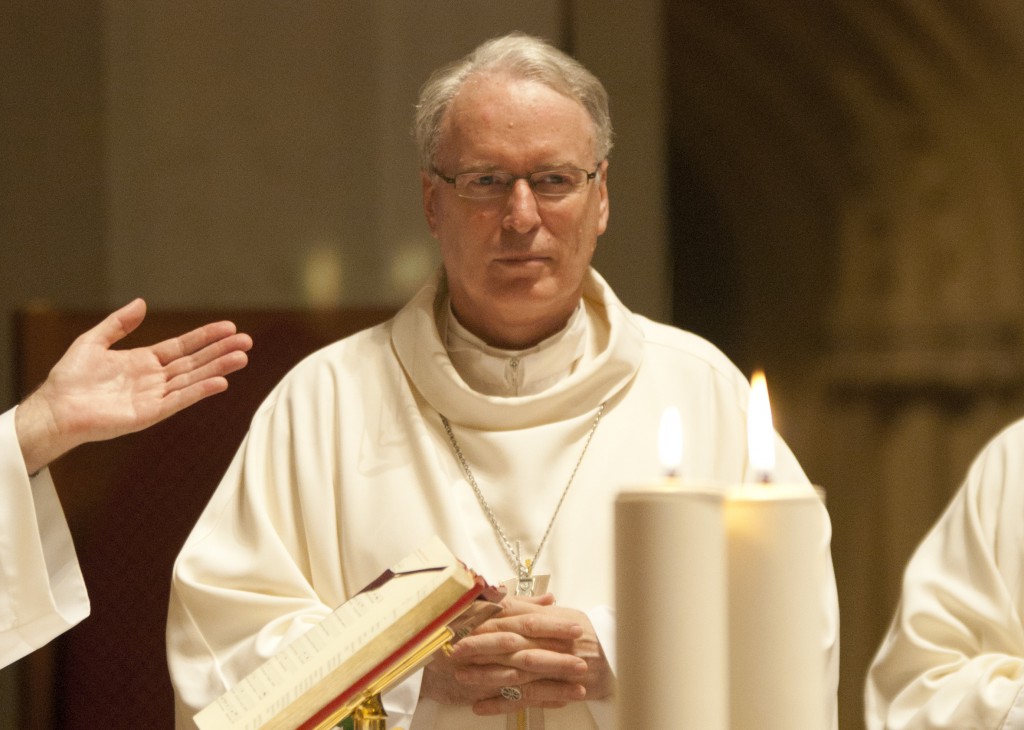
Euthanasia is being wrongly viewed as a way of escaping the problem of suffering and the fear of ageing, according to Perth’s Auxiliary Bishop Don Sproxton.
Speaking to The Record shortly after delivering a presentation on health care in Rome, Bishop Sproxton said young people struggle to visualise themselves as being old.
“In the Western cultures, younger people cannot imagine how they will be able to cope with sickness and the limits that this places on their freedom,” he said.
“The idea of euthanasia is being presented as a reasonable means of escaping not just sickness and ageing, but even a life that has lost its joy and light. Moves are afoot in some countries to legislate to allow such a person to obtain euthanasia.”
For people formed in the highly materialist and atheistic philosophies, euthanasia has become an option, Bishop Sproxton said.
“Research into the philosophical positions held by the population would show that [these philosophies], which deny the existence of the soul and spiritual dimension of the human person, have contributed to the deep sense of fear and the rejection of any meaning of a life that experiences suffering,” he said.
Last month, Bishop Sproxton told the International Conference of the Pontifical Council for Healthcare that the elderly who are in poor health are perhaps the group of people most worthy of the Church’s love and care.
“That is why the Church places such an emphasis on the care – physical, psychological and spiritual – of people in the later years of life,” he said.
Providing pastoral care is the primary means of tending to the sick and elderly, Bishop Sproxton said, often done through taking Holy Communion to those too sick to attend Mass.
Further, parish and school communities have also provided social activities for residents at aged care facilities, something Bishop Sproxton discovered during several parish visitations during the year.
Bishop Sproxton, who is the head of the Australian Bishops’ Commission for Health and Community Services, told those gathered that he had witnessed the outstanding level of care provided to his father by the Little Sisters of the Poor.
“The provision of aged care in the Church can be something of an abstract concept for so many of us; this experience of seeing the loving care that Catholic services offer has made it very real for me,” he said.
Bishop Sproxton told The Record his father had several bad falls at home before deciding to move to the nursing home run by the Little Sisters of the Poor in September 2012.
“Until dad moved into the Little Sisters, I had not had a relative live in a nursing home before,” he said.
“I am seeing the day-to-day care being given and the issues that arise almost from the inside. I have gained a new appreciation of the needs of the elderly and the care on all levels being given to my father and the other residents.”
Accompanying Australia’s growing elderly population is a desire on the part of more people to stay in their own homes, rather than move into an aged care facility, Bishop Sproxton said.
“Across Australia, Catholic services are responding to the wishes of our clients and providing health care and other forms of care in their own homes,” he said.
“Home care packages developed by our Catholic heath services prolong an elderly person’s ability to live at home by providing assistance in showering and general hygiene, house cleaning, physiotherapy and occupational therapy.”
Perth’s Auxiliary Bishop also made particular note of the “innovative” Imagine Fund program run by Southern Cross Care in Victoria, which helps older people to retain meaning in their lives.
He also commended the medical courses on offer at Catholic universities in Australia, as well as the research of St Vincent’s Hospital in Melbourne regarding the effects of anaesthesia and surgery on older patients living with memory loss.
“The soaring rates of memory-related conditions mean that much effort must be put into this work,” he said. “In Australia, dementia has now been listed as a national health priority.”
In concluding his presentation, Bishop Sproxton affirmed the continued need for the Church to lead the way in valuing the lives of the elderly.
“In a world that can sometimes devalue or even disrespect the place of older people, the Church must continue to provide the example of what it means to make room for the elderly, to welcome them and to welcome life,” he said.